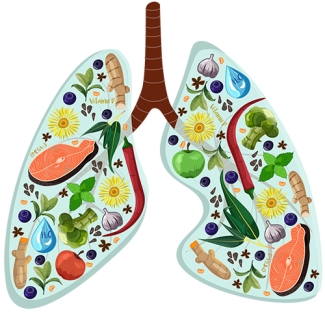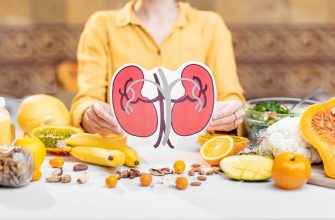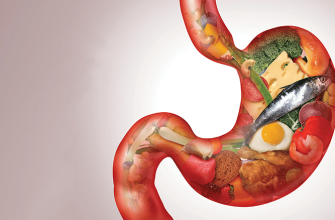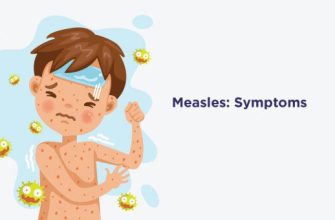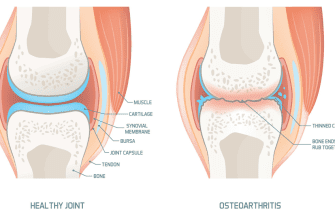Proper nutrition plays a vital role in managing chronic respiratory diseases like asthma, COPD (Chronic Obstructive Pulmonary Disease), pulmonary fibrosis, and cystic fibrosis. A well-balanced diet helps improve lung function, reduce inflammation, and maintain energy levels.
- Key Dietary Goals for Respiratory Health
- Recommended Foods for Respiratory Health
- 1. Anti-Inflammatory Foods
- 2. High-Protein Foods (Prevent muscle loss, especially in COPD)
- 3. Complex Carbohydrates (Sustain energy without bloating)
- 4. Hydration & Electrolytes
- Foods to Limit or Avoid
- Nutrition for Specific Respiratory Conditions
- 1. COPD (Chronic Obstructive Pulmonary Disease)
- 2. Asthma
- 3. Cystic Fibrosis
- 4. Pulmonary Fibrosis
- Key Supplements for Respiratory Support
- Lifestyle Tips for Better Breathing
- When to See a Dietitian?
- Prognosis
Key Dietary Goals for Respiratory Health
✔ Reduce airway inflammation
✔ Maintain healthy body weight (avoid malnutrition or obesity)
✔ Support immune function (prevent infections)
✔ Optimize energy levels (combat fatigue)
✔ Prevent muscle wasting (especially in COPD)
Recommended Foods for Respiratory Health
1. Anti-Inflammatory Foods
- Fatty fish: Salmon, mackerel, sardines (rich in omega-3s)
- Fruits & vegetables: Berries, oranges, spinach, bell peppers (high in antioxidants like vitamin C)
- Nuts & seeds: Almonds, walnuts, flaxseeds (reduce oxidative stress)
- Turmeric & ginger: Natural anti-inflammatory agents
2. High-Protein Foods (Prevent muscle loss, especially in COPD)
- Lean meats (chicken, turkey)
- Eggs, Greek yogurt
- Legumes (lentils, chickpeas)
3. Complex Carbohydrates (Sustain energy without bloating)
- Whole grains (oats, quinoa, brown rice)
- Sweet potatoes, squash
4. Hydration & Electrolytes
- Water (thins mucus, prevents dehydration)
- Herbal teas (ginger, peppermint – may ease breathing)
- Broth-based soups (provide fluids + electrolytes)
Foods to Limit or Avoid
❌ Excess salt (increases fluid retention → worsens breathing)
❌ Processed meats (high in nitrates – may trigger asthma)
❌ Fried & fatty foods (cause bloating, reduce lung capacity)
❌ Dairy (for some) (may thicken mucus in certain individuals)
❌ Carbonated drinks (bloating → diaphragm pressure)
Nutrition for Specific Respiratory Conditions
1. COPD (Chronic Obstructive Pulmonary Disease)
- High-calorie, high-protein diet (prevents muscle wasting)
- Small, frequent meals (large meals can restrict breathing)
- Limit simple sugars (prevents blood sugar spikes)
2. Asthma
- Magnesium-rich foods (spinach, pumpkin seeds – may relax airways)
- Vitamin D sources (fatty fish, fortified milk – reduces flare-ups)
- Avoid sulfites (dried fruits, wine – can trigger attacks)
3. Cystic Fibrosis
- High-fat, high-calorie diet (due to malabsorption)
- Pancreatic enzyme supplements (help digest fats)
- Extra salt intake (replaces lost electrolytes)
4. Pulmonary Fibrosis
- Anti-oxidant rich diet (fights oxidative stress)
- Adequate hydration (helps thin lung secretions)
Key Supplements for Respiratory Support
- Vitamin D (boosts immunity, reduces asthma/COPD exacerbations)
- Omega-3s (EPA/DHA – reduce lung inflammation)
- N-acetylcysteine (NAC) (may thin mucus in COPD)
- Magnesium (helps with bronchial relaxation)
Note: Always consult a doctor before starting supplements, especially if on medications like blood thinners.
Lifestyle Tips for Better Breathing
- Eat slowly & chew well (prevents swallowing air → bloating)
- Stay upright after meals (reduces acid reflux, which can worsen asthma)
- Use a food diary (identify trigger foods for asthma/COPD)
- Exercise (as tolerated) – Improves lung capacity
When to See a Dietitian?
- Unintentional weight loss (common in COPD)
- Difficulty breathing while eating
- Frequent respiratory infections
Prognosis
- Proper nutrition can improve quality of life & reduce hospitalizations.
- COPD patients with good nutrition have better survival rates.
- Asthma symptoms may decrease with anti-inflammatory diets
